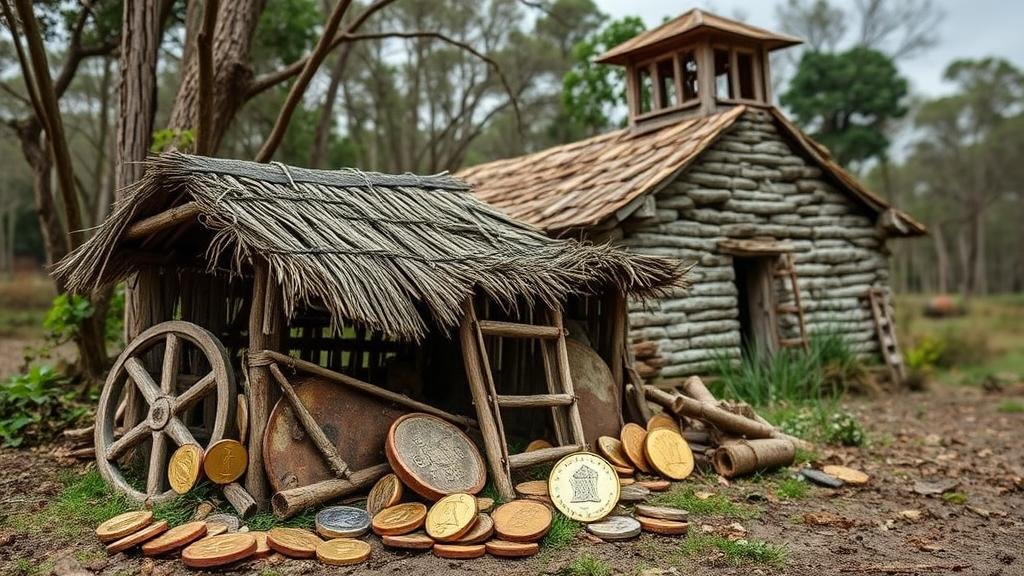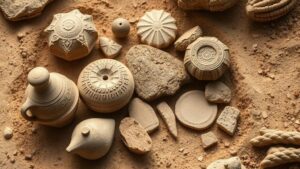Recovering Colonial Coins in Abandoned Settlements
Recovering Colonial Coins in Abandoned Settlements
The act of recovering colonial coins in abandoned settlements is a fascinating intersection of archaeology, history, and numismatics. Many of these coins, which played a crucial role in the economy of early American colonies and other nations, offer invaluable insights into the trade practices, cultural exchanges, and everyday lives of people during the colonial era. This article delves into the methodologies, historical context, and practical considerations involved in this unique endeavor.
Historical Context of Colonial Coins
Colonial coins were minted by various European powers, notably England, Spain, and France, and served as the primary medium of exchange in their respective colonies. For example, the Spanish dollar, or piece of eight, was widely accepted across the Americas and is regarded as one of the first global currencies. Coins were often made from precious metals, including silver and gold, and reflected a colonys economic stability and trade relations.
Also, some colonies produced their own coins, representing local governance and economic autonomy. For example, the Pine Tree Shilling minted in Massachusetts in the 17th century was significant because it embodied the colonys independence from British monetary systems. Understanding the historical significance of these coins helps to contextualize their recovery within abandoned settlements, as each example reflects broader historical narratives.
Methodologies for Recovery
Recovering colonial coins involves various methodologies, each tailored to the specific context of the abandoned settlement. Some of the primary techniques include:
- Metal Detection: This is one of the most popular methods for coin recovery. Advanced metal detectors can distinguish between different metals and provide readings that indicate the potential presence of coins. For example, enthusiasts have used metal detectors to uncover caches of colonial coins in sites like Jamestown, Virginia.
- Excavation: Archaeological excavations allow for the systematic search of sites where colonial activity was prevalent. These digs might be organized by universities or heritage organizations, ensuring that the historical context is preserved. Evidence from excavations in locations like Colonial Williamsburg has revealed valuable insights into daily life during the colonial period.
- Historical Research: Prior to any physical search, extensive historical research is conducted. This includes reviewing historical documents, maps, and records that provide clues about settlement locations and potential areas of interest. Understanding land use and settlement patterns can significantly enhance the recovery process.
Legal and Ethical Considerations
Recovering colonial coins raises significant legal and ethical considerations. Many countries have laws protecting archaeological sites and artifacts, requiring permits for excavation and recovery efforts. In the United States, the Archaeological Resources Protection Act (ARPA) outlines regulations for the excavation of archaeological sites on federal and tribal lands.
Also, ethical concerns extend to the treatment of artifacts once they are recovered. Coins should ideally be turned over to local museums or historical societies, which can curate and display them responsibly. For example, the Philadelphia Mint collaborates with local treasure hunters to recover historical artifacts and ensure they are preserved for future generations.
Case Studies: Notable Discoveries
Several remarkable finds illustrate the potential of recovering colonial coins in abandoned settlements:
- The Lost Coin of the New Amsterdam: Discovered in the modern-day site of New York City, this cache included several Dutch East India Company coins dating back to the 17th century. discovery has shed light on trade practices and interactions between indigenous populations and Dutch settlers.
- Cache Found in Old St. Augustine: In Florida, a group of amateur archaeologists uncovered a small hoard of Spanish colonial coins in the vicinity of the old Castillo de San Marcos. This find not only enriched local museum collections but also contributed to understanding the Spanish influence in early American settlements.
Impact on Historical Understanding
The recovery of colonial coins offers more than mere monetary value; it contributes significantly to our understanding of historical economies, cultural interactions, and social hierarchies of colonial settlements. Coins can tell stories about trade routes, the economy of everyday people, and even the socio-political environment of the time.
For example, a study of coin hoards in New England can reveal patterns of trade with Europe, while Spanish coins found in areas like the Louisiana Territory can uncover the extent of Spanish influence in North America. The coins serve as tangible links to the past, making history accessible and engaging for contemporary audiences.
Actionable Takeaways
For individuals interested in recovering colonial coins, here are some practical steps to consider:
- Educate Yourself: Learn about the legalities of coin recovery in your area. Familiarize yourself with local preservation laws and ethical guidelines.
- Join a Community: Connect with local archaeological societies or metal detecting clubs. Engaging with experienced individuals can provide valuable insights and opportunities for collaboration.
- Document Your Findings: If you successfully recover coins, keep detailed records of their locations and conditions. This information is crucial for historical analysis and preserving provenance.
To wrap up, recovering colonial coins in abandoned settlements is a rewarding endeavor that combines history, archaeology, and ethics. With proper methodologies and respect for legal frameworks, amateur enthusiasts and professional archaeologists alike can contribute to our understanding of the colonial past.



